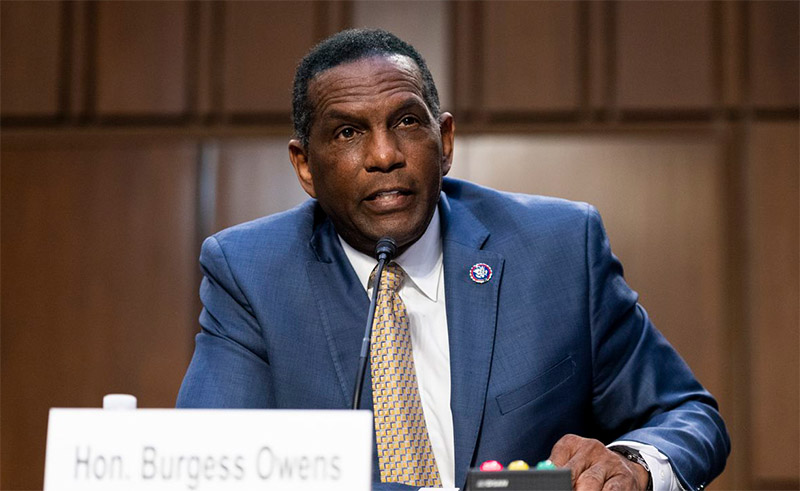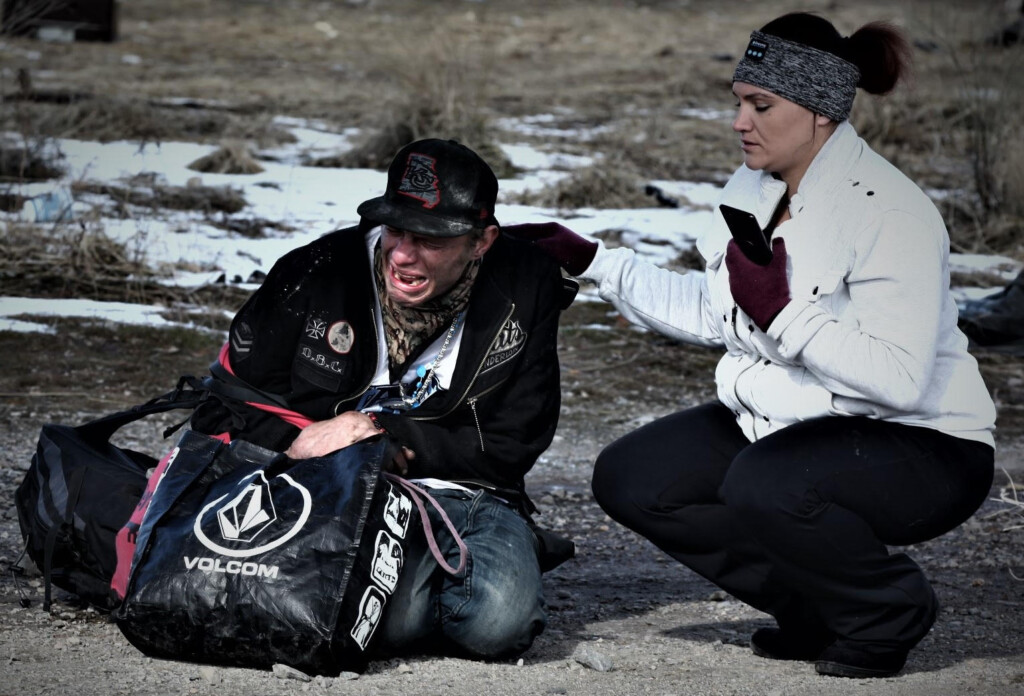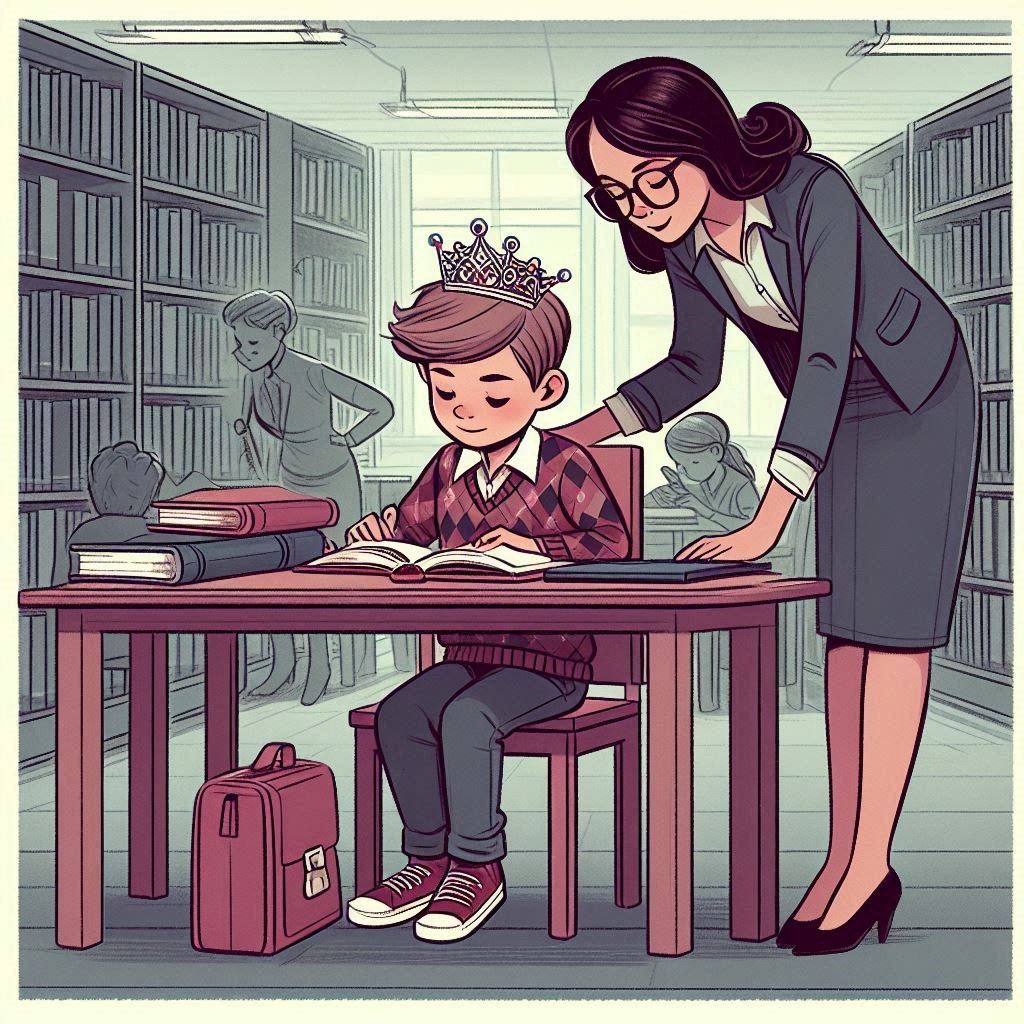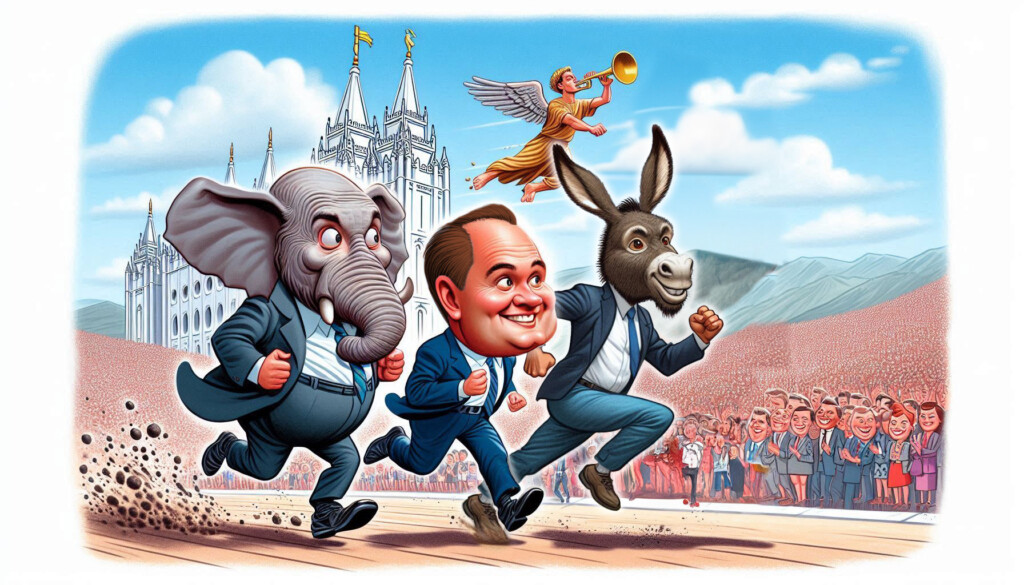Utah Rep Burgess Owens-R was invited to the Senate Judiciary Committee to speak about the backlash that has resulted for Georgia changing their voting laws to require a government-issued photo ID for all voters.

The mainstream media has been comparing these new laws with former segregation laws in the South. They have called the hearing, “Jim Crow 2021: The Latest Assault on the Right To Vote.” These law changes, passed by the Georgia State Legislature and signed by Georgia’s governor, have resulted in the Major League Baseball League changing the venue for their Allstar weekend from Georgia to Colorado. Other big corporations are coming out against the law changes including Coca-Cola. Amazon, Apple and Facebook and more than one hundred corporate entities have signed an op-ed letter written in opposition to the laws for the New York Times.
Burgess Owens knows first hand what Jim Crow laws were all like, growing up in Tallahassee, Florida under segregation. He is offended by the comparison.
Owens explained how he was required to use dirty bathrooms in the back of eating establishments that weren’t regularly cleaned due to the color of his skin. In his schooling he and other black students were required to use the old textbooks from the white schools. “Intimidation against blacks from organizations such as the KKK was initiated by the Democratic Party,” Owens pointed out.
He added, “What I find extremely offensive, which is initiated by the leaders on the left, is the belief that black people are not smart enough, educated enough, not desirous enough to do what every other culture and race is required to do: get an ID.” Owens was also offended by what he calls, “The soft bigotry of low expectations, is being initiated by the Democratic Party upon his race.”
“This is the type of fear-mongering I expected from the 1960’s, not today.”
Owens spoke out last week against reparations for the descendants of former slaves. Owens knows his personal ancestry and recounted the story about how his great-great grandfather was a slave who escaped due to the assistance from the underground railroad. His grandfather bought a farm and became a successful entrepreneur, as did all subsequent generations in his family. Owens believes that reparations for descendants of slaveholders does not abide with the American Dream. And that “penalizing white people for crimes that they did not commit is wrong.” His comments are in stark contrast with the NAACP talking points as well as the Congressional Black Caucus, which has stated goals of both liberal voting laws and slave descendant reparations.
Subscribe to Utah Stories weekly newsletter and get our stories directly to your inbox




